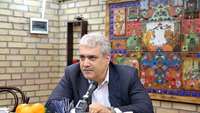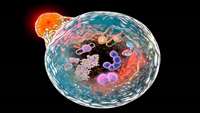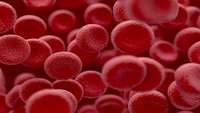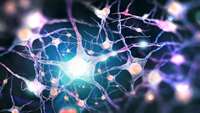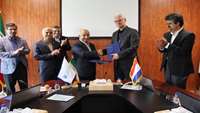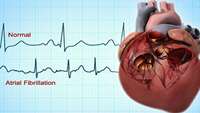The vice president for science and technology affairs stated on an interview with Khorasan:
One billion IRT prize against the lie on emigration of elites/ flourishing of startups is the best method to return elites to the country
The vice president for science and technology affairs stated on an interview: the best infrastructure for return of elites to the country is formation of startups and knowledge-based businesses.
Roles of autophagy in controlling stem cell identity: a perspective of self-renewal and differentiation
Autophagy is crucial for the removal of dysfunctional organelles and protein aggregates and for maintaining stem cell homeostasis, which includes self-renewal, cell differentiation and somatic reprogramming.
AbbVie taps Calibr’s ‘switchable’ CAR-T for solid tumors
After scrapping plans to grab a quick FDA nod for Rova-T, AbbVie is licensing CAR-T technology from Calibr to create safer, “switchable” CAR-T treatments for solid tumors.
Sattari on the Second Conference of International Economic and Technological Cooperation between Iran and Europe:
We are prepared to establish the necessary infrastructures with the help of Europe
The vice president for science and technology affairs emphasized the importance of financial transactions and other types of organizational cooperation between Iran and Europe, stating: we are prepared to establish the necessary infrastructures with the help of Europe.
Combining electrical stimulation and tissue engineering to treat large bone defects in a rat model
Bone Tissue engineering (BTE) has recently been introduced as an alternative to conventional treatments for large non-healing bone defects. BTE approaches mimic autologous bone grafts, by combining cells, scaffold, and growth factors, and have the added benefit of being able to manipulate these constituents to optimize healing.
Multiple myeloma: A bold study to make allografting safer and more efficient
In a 10-patient cohort study led by Dr. Jean Roy, hematologist and professor at the Faculty of Medicine of Université de Montréal, that aims to understand how to mitigate the risks associated with the treatment of multiple myeloma, a malignant cancer, researchers have adopted an innovative approach based on the unique immunological properties of umbilical cord blood in an effort to improve the safety and efficiency of allografting, the preferred treatment for this disease.
Fighting Parkinson’s Disease With Stem Cells
Scientists in China have demonstrated that embryonic stem cells (ESCs) partially alleviated the symptoms of Parkinson’s disease in monkeys.
FDA Moves to Stop Rogue Clinics From Using Unapproved Stem Cell Therapies
The Food and Drug Administration said on Wednesday that it was seeking court orders to stop two clinics from using unapproved stem cell treatments that in some cases have seriously harmed patients.
Signing of the Memorandum of Understanding between Tehran University of Medical Sciences and the Erasmus University Medical Center of the Netherlands
The Memorandum of Understanding of the international Joint Cooperation between Tehran University of Medical Sciences and the Erasmus University Medical Center (Erasmus MC) of the Netherlands signed in order to develop scientific and academic interactions.
UIC researchers create heart cells to study AFib
University of Illinois at Chicago researchers have discovered a way turn pluripotent stem cells into atrial cells, which make up the upper chambers, or atria, of the heart. The discovery will enable them to better study atrial fibrillation, the most common heart rhythm disorder also known as AFib, which originates in the hearts atria.


